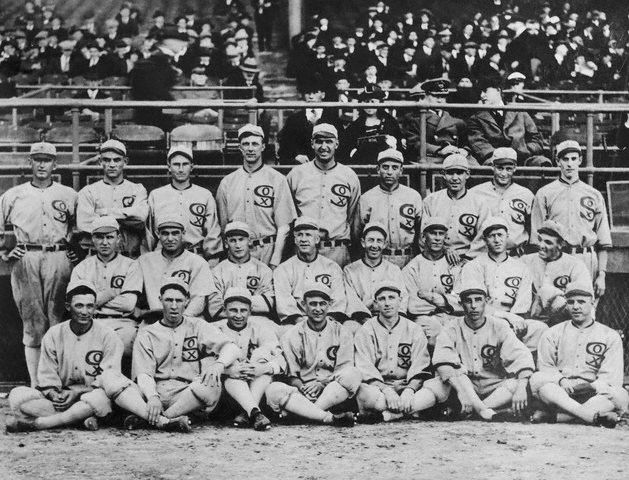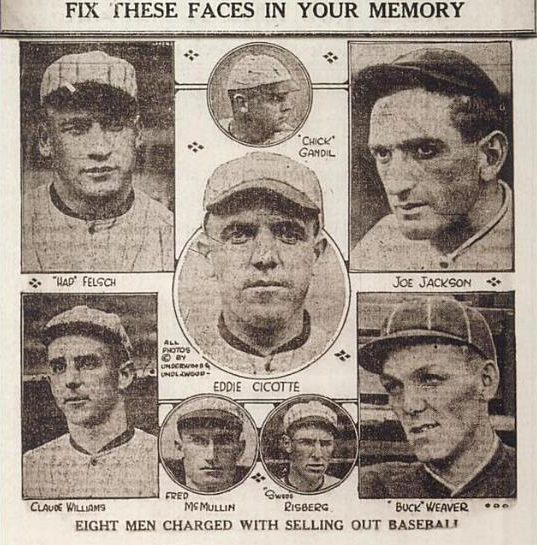Warmachine Editorial: Living with the Asterisk


 Everyone messes up a rule now and again. In Warmachine/Hordes, one rule can be make or break. Find out what to do when you’ve got a record with an asterisk.
Everyone messes up a rule now and again. In Warmachine/Hordes, one rule can be make or break. Find out what to do when you’ve got a record with an asterisk.
Chalkboard here from Chalkboard War, with a discussion of that sensitive subject in Warmachine/Hordes: what happens when someone messes up a rule?
Warmachine/Hordes is frequently described as a “tight” game system. The designers are very careful about rules, rule wordings, and all of the various interactions that happen when models with rules hit the table. Yet the players of the game are human beings, and thus there are going to be moments when rules are forgotten, misinterpreted, or mis-applied. Players are going to make mistakes, and with Warmachine/Hordes there is increased likelihood that mistakes can be game-deciding issues. Compare to other game systems: players forgetting a pilot’s special rule in X-Wing for a turn, or getting an ability wrong for a unit in Warhammer 40k. These are things that can have a greater or lesser impact on the game. With Warmachine/Hordes, because of the ever-present caster kill condition in games, a slight error can open the window to a sudden reversal of fortune. The laundry list of common mistakes is epic: line of sight and model size, unit orders and activations (particularly when charging), multiple upkeeps, laying a model down when it’s knocked down, disabled/boxed/destroyed, and the ever-forgotten Abomination affects my own side rule.
While both players are charged with making sure all rules are followed correctly, there are still bound to be some mistakes. We’ve have a recent upsurge in interest in Warmachine/Hordes in my area after a certain other Fantasy game released a new edition, and that means new players. I decided to start a brand new faction so I’m learning things with them, so it was goodbye to my comfortable Everblight and hello to Skorne. Anytime new players are in the game, there are going to be mistakes made. And I’ve noticed that I’ve made some mistakes myself while dealing with some of the Skorne-specific rules and areas of the game that I don’t encounter as much (as a long-time Everblight player who banked heavily on eyeless sight, concealment might as well be brand new). After one session where I had botched a rule that led to my victory, when we realized the mistake my friend joked that “this one gets an asterisk”.
Either the 1919 “Black Sox” or my Skorne force right now
After laughing about it, and realizing that everyone’s record is likely marred with asterisks as we learned to play and continue to field new models and rules, I thought it would be good to see what we as tabletop wargamers can learn from the issue of asterisks in other places.
Competitive games are rife with examples of records that have been marred with asterisks. From the steroids era (culminating in Barry Bonds’ record-breaking home run ball being defaced with an asterisk then donated to the Hall of Fame) and the “Black Sox” scandal to corked bats, spitballs, and Pete Rose, there are all sorts of examples from American Baseball alone. Add to that excessive diving in Soccer, deflating balls or coaches tripping players on the field in American Football, and one technically legal but rather unsportsmanly underarm bowl in Cricket (an incident worthy of an epic wikipedia entry), and you’ve got a long-standing precedent for how hard it is to deal with records when rules aren’t followed exactly. The approach in many of these cases is the asterisk next to the record. It’s an indication that while one side won and one side lost, there may have been other factors at play that unequally contributed to the outcome.
Where the sports example breaks down a bit is with intentional cheating. While they might have claimed it was flax seed oil or ignorant assistants handing them training bats or inflating balls incorrectly, some of the above cases trend more toward intentional breaking of rules for gain. In tabletop wargaming, when it moves to intentional cheating there is an easy response: removed from the tournament or shunned in the local scene.
It’s the error side where the story gets much more interesting. What do we do about games where someone messed up, and the results might have been affected?
I’m pretty sure that Shoeless Joe Jackson’s tier list is going to be a good one
One important concept to keep in mind is the presumption of random noise. The idea here, from statistics, is that there’s going to be a bunch of variations from the central trend–but the central trend will still be discernible. More simply, for every error that helps one side, there’s an error that helps the other side. In a recent bout, my Lord Assassin Morghoul had a foe get a backstrike bonus against him (which he should have not suffered, as he has the Perfect Balance rule), but I also medicated my Bronzeback twice in one round (he still only gained a total of three hit points, but it can only applied to each warbeast once per turn). Both mistakes on my part, one that helped me and one that hurt me.
When looking at friendly games, random noise isn’t a problem. The default presumption is that both players are trying their best, and that mistakes might occasionally be made. Each player is likely to read/take things in a way that benefits them, but they’ll be policing their opponents’ actions and rules as well. The mistakes become random noise: ups and downs in the data, but overall unlikely to affect the mean after lots and lots of repeated interactions. A missed rule here or there–in your favor or in your opponent’s favor–doesn’t have a meaningful impact on the overall trend. We can even consider the probability that mistakes cancel each other out over the long term. Each party does their best, then after the fact re-reads the rules and re-thinks the battle to see what was missed and how to improve.
However, in moments when the game is a single interaction with higher stakes (such as a tournament), then this assumption that little mistakes cancel out breaks down. In this case, tournament players and organizers should both have plans about how to deal with potential asterisks. Much asterisking comes after-the-fact. The player realizes only after the game results have been concluded that something was in error. Both sides make their case about “potential” outcomes and what could have been (e.g. “If they hadn’t triggered that improperly, it would have left the opening which my models could have used to get to the warcaster”). This can lead to sore feelings because it was a single interaction–legitimate errors can be perceived as intentional cheating when stakes are higher. And there’s no repeated interaction to allow all the little mistakes to even out. There’s often no right answer for the tournament organizer to make, as voiding the results can affect both player’s standings in odd ways. Having a plan to deal with the issue and asterisk prior results when needed is the best bet.
The lesson, I think, comes from the need for people to do their utmost to keep themselves policed. Recognize and accept when you make a mistake, and use it as a motivation to learn the game better and discuss with other players. Hold yourself to the highest standard you can, and also accept that there are going to be a couple of asterisks along the way. And just be honest about them. Own your mistakes. And don’t ever blame flax seed oil for forgetting that boxed comes after disabled.
~What do you do when you realized you messed up a rule? Or when an opponent messed one up?
Want to see Chalkboard’s latest asterisk? Check out his blog at www.chalkboardwar.com.




